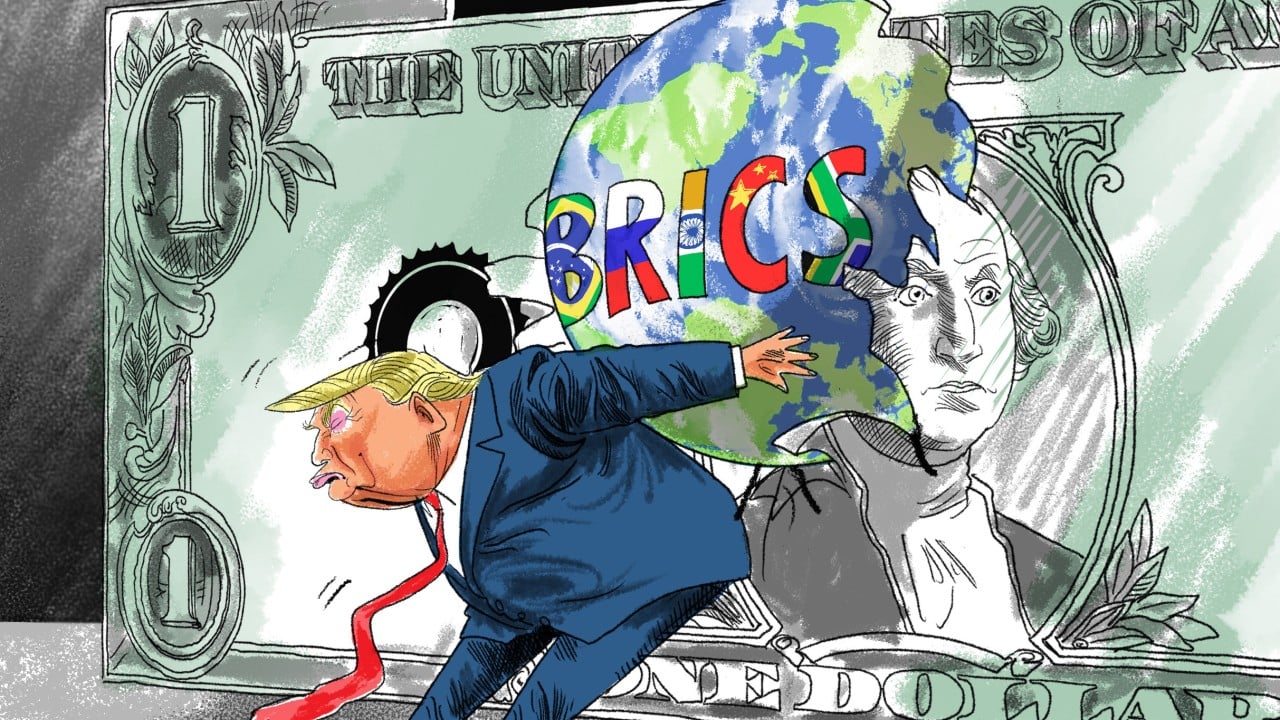“We require a commitment from these countries that they will neither create a new Brics currency nor back any other currency to replace the mighty US dollar, or they will face 100 per cent tariffs and should expect to say goodbye to selling into the wonderful US economy,” Donald Trump warned late last month, referring to a push by some members of the grouping to create a new payment system for their expanding trade.
Advertisement
But the US president-elect’s diatribe seemed a tad overdramatic. For a start, India, a key member of Brics, has distanced itself from the idea of creating a new common currency. Moreover, Brics remains divided on many issues, divisions exacerbated at times by territorial disputes between China and India. Meanwhile, the US dollar remains the dominant currency of global trade, with no credible alternative yet.
Nevertheless, the expanded Brics grouping is steadily transforming into a formidable platform, which represents the deepening aspirations of rising powers for a more multipolar international order. Anticipating a new round of trade wars and disruptive policies under a second Trump administration, Brics is likely to intensify trade and strategic cooperation among its member-states to de-risk from the US’ strategic excesses.
For the past half-a-century, countless pundits have reflected on the United States’ supposed decline as the world’s superpower. The country has repeatedly been bogged down by seemingly intractable conflicts, such as in Vietnam and Iraq. There were also civil strife and democratic crises, reflecting profound polarisation in American politics.
But as perspicacious observers such as historian Adam Tooze have noted, America remains a global colossus, especially in the realm of finance. Top American companies and start-ups dwarf counterparts from across the world in terms of market capitalisation, while the US has maintained a substantial share of global gross domestic product throughout the decades. The US contributes to about a quarter of the world’s economic output, and the US dollar is responsible for up to 90 per cent of global foreign exchange transactions.
Advertisement
The US’ economic preponderance has given it tremendous global influence, allowing it to accrue massive debts, sustain competitiveness in cutting-edge sectors, sanction and isolate rival states, and finance the world’s most powerful military.


